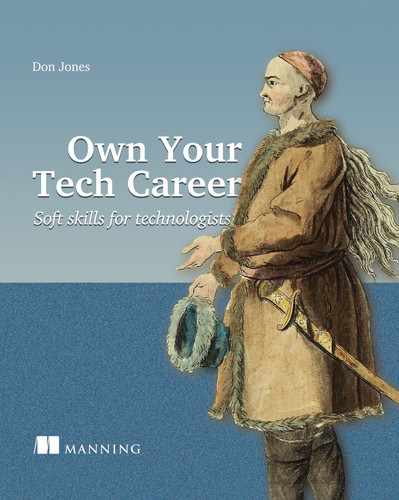Every technology professional needs two distinct, overlapping, and complementary skill sets in order to enjoy a successful career—no matter how you define success.
The first set of skills is your hard skills, the technology skills that let you get the job done every day. Those are your programming skills, your systems admin skills, your network engineering skills, your security skills, and so on. They’re the ones you likely focused on in school, and they’re probably the ones you think about most when it comes to looking and applying for jobs.
The second set of skills is what I call the squishy ones, or what the industry more commonly calls soft skills. These are the skills that require no technical prowess but that instead more often focus on human prowess. These are skills like communication, teamwork, conflict resolution, leadership, and the like.
In my 20-odd years in the tech world, I’ve found that the difference between the best technologists and the just-okay ones is the soft skills. The best technologists are amazing technical experts, of course, but they also engage with their peers, colleagues, customers, and coworkers more effectively. They bring a human side to technology, and it’s a big part of what drives their success.
Browse some job postings on your favorite job website, and you’ll find the usual smattering of technology desires: JavaScript, HTML, Linux, pen testing, Tableau, Cisco, you name it. But dig deeper, and you’ll find that what companies seem to be really concerned about are these human skills, like teamwork and communications. Those skills are often harder to evaluate in a job candidate, but they’re the key to making a team healthy and effective.
In this book, I present more than a dozen of these soft skills. I’ve been a technology professional almost my entire adult life, and so I discuss these skills as a technology professional. Some of you will have already mastered some of these skills, and the layout of this book—one skill per chapter—should make it easy for you to skip those, if you want to. (Though there’s a good chance that I may offer a new perspective on the skills that are already part of your repertoire.)
I also present a handful of hard nontechnology skills that I feel are important for anyone to master in support of their career. These are hard skills, as in they are quantifiable and repeatable, but they are not related to technology—how to read a P&L statement so you can gauge the financial health of your company, for example, or how to read between the lines in a job posting. There are skills that have benefited my career a hundredfold over the years.
I’ve tried as much as possible to make everything in this book relevant to a global audience. I’m based in the United States, and so a few of the examples I offer are US-centric. Whenever that happens, I’ve tried to take care to acknowledge that limited perspective and offer what I can to help you explore a more localized perspective on your own. The underlying principles are universal, so hopefully those details that don’t apply in your country won’t deter you from picking up the underlying message.
I also want to acknowledge that the perspectives in this book are entirely my own. I’ve tried very hard, over the years, to let my perspectives evolve and be shaped by the many people I’ve worked with, but in the end I can really only offer you what I’ve gleaned from my own experiences. In no way do I want to present my perspectives as the objectively correct ones, let alone the only ones in the world. Instead, I hope you can simply absorb what I’ve written and fit them into your life wherever they offer you value. And please, don’t let this book be your only exploration into these important skills. We may call them soft, but that’s simply because they’re often hard to quantify and measure. They’re critical by any measure.
I hope you’ll feel free to reach out and let me know what you think of the book. You can always connect in the forums on Manning.com, and that’s where any errata—typos and the like—should be noted, as the whole Manning team helps collect those for future printings. But you’re also welcome to contact me via the HMU page on my website, DonJones.com, or even ping me on Twitter @concentratedDon (but please do keep the errata on Manning.com so it can be acted upon).
